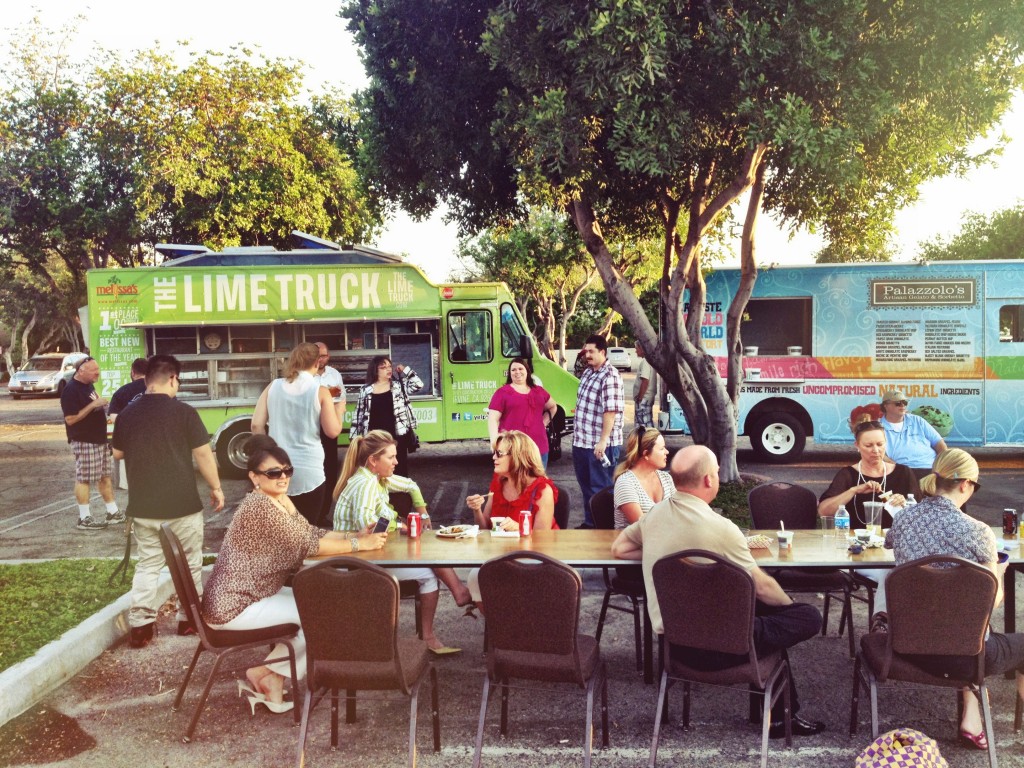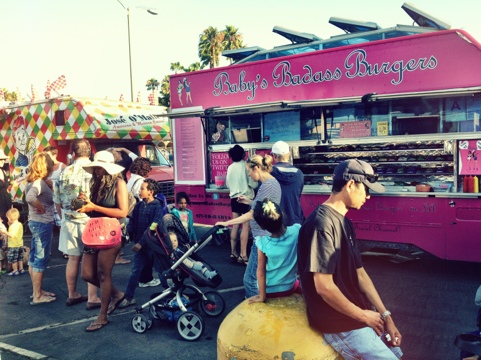After 10 months of negotiation, the Health Department has changed some of their policies concerning bathroom access. The requirement for the bathroom letter, is no more. The members remained committed to changing these polices, and should be applauded!
As of July 1, 2012, the County has agreed to:
- eliminate the “bathroom letter” requirement in its entirety;
- require trucks to show only “actual access” to a bathroom facility when operating for more than one hour at the same location;
- provide an actual definition of “same location”; and
- exclude suspension and truck closure as penalties for lack of bathroom access.
New Interpretation and Enforcement Policy:
- The County will no longer require Mobile Food Facilities to acquire a bathroom authorization form. Mobile Food Facilities that are stopped to conduct business in the same location for more than one hour will only need to demonstrate “access in fact” to an approved toilet and hand washing facility within 200 travel feet of the truck.
To demonstrate “access in fact” an employee will have to walk the inspector into a bathroom within 200 feet of the truck. If the bathroom has working toilets, warm water, and single use soap and towels, no bathroom violation will be issued. A truck may still use a bathroom letter to satisfy the requirements of Section 114315; it is simply not a requirement.
1. A truck that does not have bathroom access (either a “bathroom letter” or “access in fact”) may not operate in the same location for more than one hour. However, the County will no longer issue temporary suspensions or order immediate closures of trucks that operate for more than one hour without access to an approved toilet and hand washing facility. To avoid a temporary suspension and immediate closure the truck must immediately cease operations at that location and move at least one half mile before restarting. Further, the truck may not return to that location for the rest of the day. The truck will still be cited for a violation and be docked 6 points if it is a graded inspection. A truck that receives two violations within a twelve-month period will be subject to a permit revocation proceeding. A truck that refuses to cease operations will be subject to a suspension and an immediate closure.
2. A truck that voluntarily suspends business operations for a minimum of 15 minutes within a one-hour period will be presumed to be operating for less than one hour and are not subject to a restroom requirement. A truck will be deemed to have suspended business operations only when the service window is closed and all employees have vacated the vehicle. No sales may take place during this 15-minute period and all food must be properly stored. Operators must place a “clock sign” in plain sight to customer indicating when the break began and when operations are scheduled to resume.
3. A truck that does not have access to bathroom facilities that does not choose to cease operations pursuant to number (3) above may not operate for more than one hour at the same location. However, a truck may continue operations under one of two scenarios:
a. Move the vehicle at least one half mile from the prior location or
b. Move the vehicle to service a different “community of customers.” This means that truck moves far enough away from its previous location that its customers are different than the ones it was previously serving. So as an example, customers two blocks down on Abbott Kinney or Chatsworth on a Friday night are likely not a different “community of customers.” But customers on Hill and Fourth in Downtown Los Angeles are likely a different “community of customers” from the ones on Hill and First.
A truck that elects to continue operations under either option a. or b. may return to its previous location after fifteen minutes.



